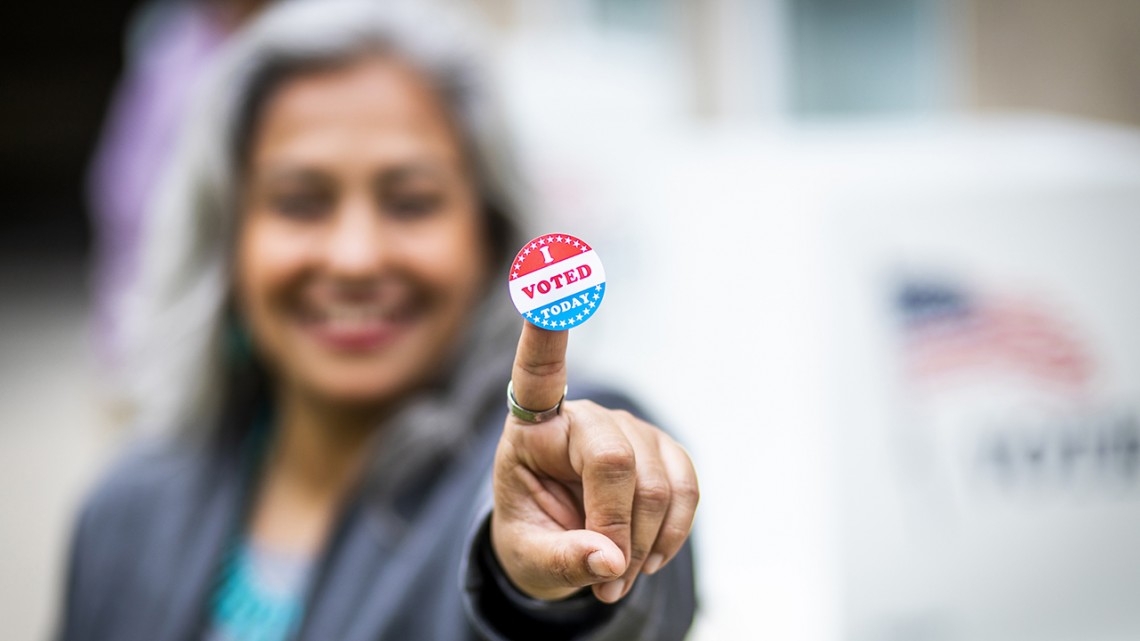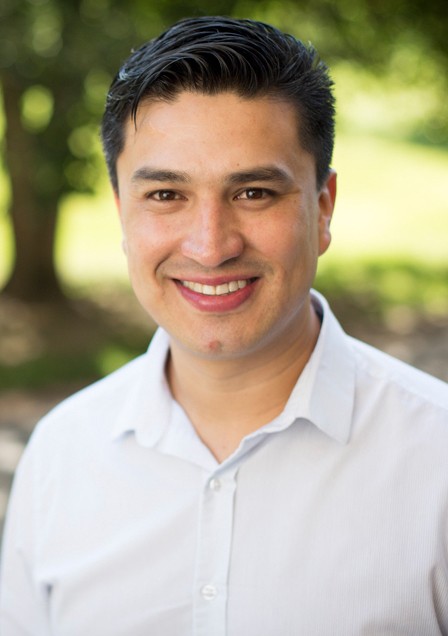
Cornell professor, pollster taking pulse of Latino voters
By James Dean
Bernie Sanders and Joe Biden lead Democratic presidential nominees among registered Latino voters heading into the Feb. 22 Nevada caucuses, the first contest in a diverse state. Nationally, registered Latino voters favor any of the Democratic contenders over President Donald Trump by large margins, and rate health care and racism as significant concerns.
Those are some of the key findings from the latest Univision News poll led by Sergio Garcia-Rios, assistant professor of government and Latina/o studies in the College of Arts and Sciences.
Univision last year tapped Garcia-Rios as director of polling throughout the presidential campaign, a role that will give Cornell prominence in the tracking of a growing and increasingly influential voting demographic.
“From Cornell, we’re taking the pulse of the Latino community and the Latino electorate on a regular basis in a historic election,” Garcia-Rios said. “That’s humbling and exciting.”
Latinos this year are projected to be the largest racial or ethnic minority voting group for the first time with a record 32 million voters, comprising about 13% of the national electorate, according to the Pew Research Center.
They make up nearly 20% of Nevada’s eligible voters, according to Pew, compared to about 3% in Iowa and New Hampshire, hosts of 2020’s first two nominating contests earlier this month.
Garcia-Rios, a self-described “fronterizo” who grew up in both Mexico and Texas, said he and Univision shared a desire to accurately capture Latino public opinion with a scientific and bipartisan approach.
Broader polls and exit polls, he said, often fail to reach representative samples of a diverse Latino population. Latinos’ varying geographic, generational and political backgrounds, he said, shape different attitudes across the country – more conservative in Florida, for example, than California.
“Being aware that it’s not monolithic, and being able to capture that full picture, is important to us,” said Garcia-Rios, who plans to write a book about Latinos’ role in the 2020 election.
Accurate polling of Latino opinion requires understanding how to connect with a population that can be harder to reach, he added, because of language barriers, access to technology and voter registration trends. “We have to be creative in the way that we reach out to this population,” he said.
Garcia-Rios employs a hybrid approach that reaches out bilingually to potential voters by cellphone, landline telephone and online, confirming if they are registered voters. He writes the poll questions – seeking opinions on key issues as well as candidate preferences – and oversees the data analysis.
Candidates closely follow the results, which have contributed to qualifying for Democratic debates, Garcia-Rios said. For example, a poll last year found that half of Latino voters didn’t care if candidates addressed them in Spanish, and another quarter didn’t like it.
“Definitely a massive power block important in the future election,” Garcia-Rios said, “but a group that has to be reached out to and approached with policies, not using a bit of Spanish in a debate.”
The new poll, produced in partnership the Latino Community Project, surveyed 1,000 registered Latino voters nationally and 306 in Nevada from Feb. 9-14. The margins of error were plus or minus 3.1 percentage points nationally and 5.6 percentage points in Nevada. Democratic primary preferences were asked of 667 respondents nationally and 210 in Nevada, with margins of error of plus or minus 3.8 percentage points and 6.7 percentage points, respectively.
The results showed Sanders leading other Democratic candidates with 33% support in Nevada and 30% nationally, followed by Biden at 22% and 21%, respectively. In head-to-head matchups with Trump, Michael Bloomberg also fared well in Nevada, with 78% planning on or leaning toward voting for him, second to Sanders’ 80% total.
Four out of five Nevada respondents disapproved of Trump, with 60% “strongly” disapproving. Nationally, 73% disapproved of the president, 49% strongly. At the same time, Trump’s approval rating among Latinos rose from 22% to 27% since September.
Latino support for Sanders – up 10 points since September – reflects their focus on health care as the top campaign issue, according to the poll, ahead of improving incomes, creating jobs and protecting immigrant rights.
Immigration policy and discrimination are growing concerns, Garcia-Rios said. More than half of poll respondents nationally and in Nevada identified racism against Latinos and immigrants as a “major problem,” while another quarter called it “somewhat of a problem.”
Latino voter turnout surged in the 2018 midterm elections, compared to four years earlier. If that trend continues, Garcia-Rios said, Latinos could potentially play a decisive role in battleground states such as Florida, Nevada, Ohio, Texas and Wisconsin.
“A big Latino turnout,” he said, “could have a big impact in the general election.”
Media Contact
Get Cornell news delivered right to your inbox.
Subscribe

